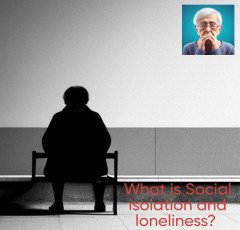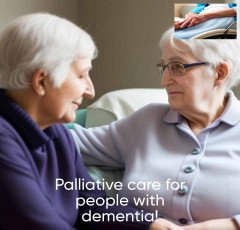
What is Palliative care and end-of-life planning ?

A type of medical care called palliative care aims to relieve the pain, symptoms, and stress brought on by life-threatening illnesses.
Regardless of the illness's stage or the chance of a cure, the aim of palliative care is to enhance the quality of life for patients and their families. In order to meet the patient's physical, emotional, and spiritual requirements, a team of healthcare professionals, including physicians, nurses, and social workers, often provides palliative care.
Making decisions about the medical care and treatment a person would like to receive if they became extremely ill or were towards the end of their lives is known as end-of-life planning. This includes choices for life-sustaining procedures, such as artificial ventilation or feeding tubes, as well as choices regarding the location and mode of care, such as a hospital or the patient's home. Discussions regarding living wills and durable powers of attorney for healthcare, which are legal papers that outline a person's intentions for medical treatment and appoint someone to make decisions on their behalf if they are unable to do so, are also a part of end-of-life planning.
The patient's goals and values, such as their preferences for pain management, spiritual care, and emotional support, are frequently discussed as part of end-of-life planning. Patients should have these discussions in advance with their doctors and loved ones while they are still able to make their own decisions.
Both palliative care and end-of-life planning are concerned with enhancing the quality of life for patients who are suffering from life-threatening illnesses.
The provision of knowledge, emotional support, and assistance in facilitating conversations between the patient, their loved ones, and their healthcare team are all ways that palliative care professionals can assist patients and their families with end-of-life planning.
Despite having many parallels, palliative care and hospice care are distinct from one another.
For patients who are nearing the end of their lives and are no longer seeking curative treatments, there is a sort of palliative care known as hospice care. Hospice care focuses on treating pain and other symptoms as well as giving the patient and their family spiritual and emotional support. The patient's home, a hospice center, or a hospital are just a few locations where hospice care might be given.
Important components of healthcare that concentrate on enhancing the quality of life for people with serious illnesses include palliative care and end-of-life planning. Together, these two approaches help patients and their families on a physical, emotional, and spiritual level while also ensuring that they receive medical care that is consistent with their values and goals.
Palliative care and end-of-life planning can improve the quality of life for patients and their families while also lowering healthcare expenses by preventing pointless procedures and hospital stays that go against the patient's desires. Healthcare practitioners can make sure that the patient's desires are respected and that they receive care that is compatible with their objectives and values by in advance discussing and documenting the patient's preferences for medical care.
End-of-life planning and palliative care are not simply for people who have serious illnesses or are nearing the end of their lives.
Regardless of age or illness stage, anyone with a serious illness can benefit from these techniques. Palliative care can assist patients and their families in overcoming the difficulties of coping with a serious disease by focusing on the patient's quality of life and meeting their physical, emotional, and spiritual requirements.
Important components of healthcare that concentrate on enhancing the quality of life for people with serious illnesses include palliative care and end-of-life planning. In addition to ensuring that patients receive medical care that is in line with their goals and values, these practices offer patients and their families physical, emotional, and spiritual support. Healthcare practitioners can make sure that the patient's desires are respected and that they receive care that is compatible with their objectives and values by in advance discussing and documenting the patient's preferences for medical care.
Palliative care and end-of-life planning are not about giving up or abandoning hope; rather, they are about focusing on what is most important to the patient and their family during a trying time. It is crucial for patients and their families to comprehend this. By relieving pain and other symptoms and assisting patients and their families in finding purpose and meaning in their lives, palliative care can offer hope and comfort even in the face of a terrible illness.
It is crucial to discuss palliative care and end-of-life planning with your healthcare physician if you or a loved one is dealing with a serious disease. You can get assistance and information from your healthcare professional, who can also guide you through these difficult situations. Additionally, they can assist you in finding palliative care options and services in your neighborhood, including support groups, counseling, and spiritual care.
Important components of healthcare that concentrate on enhancing the quality of life for people with serious illnesses include palliative care and end-of-life planning. In addition to ensuring that patients receive medical care that is in line with their goals and values, these practices offer patients and their families physical, emotional, and spiritual support. It is crucial to discuss these crucial topics with your healthcare professional if you or a loved one is managing a serious disease.
It's more crucial to remember that talking about palliative care and end-of-life planning can be challenging and distressing emotionally.
However, having these talks beforehand can provide the patient and their family peace of mind and assist guarantee that the patient's desires are respected.
Asking your healthcare practitioner for information, sharing your own ideas and worries with your loved ones, and deciding what matters most to you in terms of your medical care and quality of life are some ways to start conversations regarding palliative care and end-of-life planning. You can also speak with a palliative care professional who can assist you and your loved ones and help to encourage conversations.
There are resources in your community that can offer support and information in addition to talking with your healthcare physician, loved ones, and others about palliative care and end-of-life planning. Support groups, advocacy groups, and hospice and palliative care organizations can offer you and your family information and tools to assist you and your family deal with these crucial problems.
Important components of healthcare that concentrate on enhancing the quality of life for people with serious illnesses include palliative care and end-of-life planning. In addition to ensuring that patients receive medical care that is in line with their goals and values, these practices offer patients and their families physical, emotional, and spiritual support.
To comprehend that end-of-life planning and palliative care concern not only the patient, but also the patient's family and carers.
Family members and caregivers who might be struggling with their own emotional, physical, and spiritual issues can benefit from these support and resources.
Palliative care and end-of-life planning can assist make sure that the patient's medical and legal needs are met in addition to offering support for family and caregivers. A living will or durable power of attorney for healthcare may be created as part of this process to guarantee that the patient's preferences are honored even if they are unable to make their own decisions.
Should understand that end-of-life planning and palliative care are not universal.
Each patient is different, and over time, their emotional and medical needs may vary. In order to ensure that patients and their families receive the support and treatment that are most essential to them, palliative care clinicians and healthcare teams can work with patients and their families to change their care plans as necessary.
Important components of healthcare that concentrate on enhancing the quality of life for people with serious illnesses include palliative care and end-of-life planning. These procedures guarantee that patients receive healthcare that is in line with their objectives and values while also offering assistance to patients, their families, and carers.
Palliative care and end-of-life planning can frequently assist patients and their families in finding solace, tranquility, and meaning in their lives, even in the midst of a trying period. Palliative care can assist patients in achieving their goals, maintaining their dignity, and remaining independent by focusing on the patient's quality of life rather than just their physical condition.
Palliative care can assist patients in controlling their symptoms, such as pain, breathlessness, exhaustion, and nausea, in order to maintain their level of comfort. Medication, physical therapy, massage, and other supporting therapies may all fall under this category.
Patients and their family may benefit from palliative care by receiving psychological and spiritual assistance.
Among the options available to help patients and their families deal with loss and grief could be counseling, support groups, and spiritual care.
For patients and their families dealing with terrible diseases, palliative care and end-of-life planning are crucial components of healthcare that can offer solace, encouragement, and purpose. In addition to ensuring that the patient's medical and emotional requirements are satisfied, these methods emphasize enhancing the patient's quality of life. Patients and their families can make educated decisions and guarantee that their desires are respected by discussing these matters with their healthcare professionals and close family members.
To emphasize that palliative care is not just for people who are dying.
In reality, regardless of age or diagnosis, individuals with serious illnesses can benefit from palliative care at any stage of their illness. Palliative care can support patients in managing their symptoms, enhancing their quality of life, and pursuing their objectives while preserving their independence.
Numerous facilities, including hospitals, nursing homes, and outpatient clinics, can offer palliative care.
In order to guarantee that the patient's medical and emotional requirements are satisfied, palliative care practitioners can collaborate with the patient's healthcare teams while patients are receiving other medical treatments.
Realize that palliative care is a team-based approach that includes healthcare professionals from several specialties, including physicians, nurses, social workers, chaplains, and others. Patients are guaranteed comprehensive care that covers their physical, emotional, and spiritual requirements thanks to this interdisciplinary approach.
The goal of palliative care is to enhance the quality of life for patients who are suffering from life-threatening illnesses.
It can be given in a variety of locations and at any stage of the illness. Palliative care helps patients and their families find comfort, peace, and meaning in their lives even at a trying time by attending to the patient's medical, emotional, and spiritual needs.
On the other side, end-of-life planning is the process of deciding what type of medical treatment and other end-of-life matters a person would prefer to have in place when they are unable to make their own decisions. This includes selecting life-saving procedures like CPR, artificial breathing, and artificial hydration and nourishment.
The process of end-of-life planning also entails choosing a surrogate decision-maker, such as a family member or friend, who will be able to make medical decisions on the person's behalf if they are no longer able to. Making arrangements for funeral and burial services is also a part of end-of-life planning, as is drafting a will and establishing trusts.
Making advance directive ”legal agreements that specify a person's choices for medical treatment and end-of-life matter”is a crucial part of end-of-life planning. A durable power of attorney for healthcare, which names a surrogate decision-maker to make medical decisions on the person's behalf if they are unable to do so, and a living will, which expresses the person's preferences for end-of-life care, are two examples of advance directives.
By making end-of-life plans, people can make sure that their desires are honored and that their loved ones are not forced to make tough choices during a time that is already stressful and emotional. Additionally, it might bring comfort to know that their medical needs and other end-of-life concerns have been taken care of in accordance with their intentions.
Making decisions about the medical treatment and other end-of-life matters that a person would prefer to have in place when they are no longer able to make their own decisions is known as end-of-life planning. This can include planning funeral and burial preparations, choosing a surrogate decision-maker, and drafting advance directives. Individuals can guarantee that their desires are honored and that their loved ones are not burdened with tough decisions during an already stressful and emotional time by engaging in end-of-life planning.
It's crucial to understand that not everyone with a terminal illness or older folks should make end-of-life plans.
End-of-life planning is beneficial for anyone over the age of 18, as unforeseen medical problems can happen to anyone at any time.
Additionally, end-of-life planning is a continuous process rather than a one-time occurrence. It is crucial to review and amend advance directives and other end-of-life arrangements in accordance with a person's changing end-of-life choices when their medical condition or living circumstances change.
To discuss end-of-life wishes and arrangements with loved ones in an open and honest manner.
When it comes to making medical decisions, this can assist guarantee that everyone is on the same page and that there are no surprises or misunderstandings.
In general, palliative care and end-of-life planning are significant components of healthcare that can give patients and their families assistance when dealing with serious illnesses or the end of life. Individuals can make sure that their desires are honored and that they get the care and support they need at this trying time by collaborating with healthcare professionals and loved ones to develop a comprehensive plan.
Taking into account spiritual and emotional needs is a crucial component of end-of-life planning.
Many people find solace and purpose in their spirituality and religion, especially during trying times. It is crucial to determine any spiritual or religious preferences and needs and to include them in the end-of-life plan.
Addressing the patient's and their loved ones' emotional needs is equally crucial.
Providers of palliative care can help patients and their families find local services and support networks, as well as offer counseling and emotional support.
To be aware that making plans for the end of life can be a challenging and unpleasant process.
It's crucial to approach these conversations with tact and respect, as well as to give patients and the people who care about them the space and support they need to think things through and come to decisions.
Planning for the end of life is a complex process that takes into account emotional, spiritual, legal, and physical factors. Individuals can make sure that their desires are followed and that they receive the care and support they require at this trying time by participating in this process and collaborating with healthcare professionals and loved ones.
In addition to end-of-life planning, it's crucial to take into account palliative care's role in giving patients with serious illnesses support and comfort. Palliative care is a type of specialized medical care that aims to improve both the patient's and their family's quality of life by relieving the symptoms and stress of a serious disease.
Palliative care can be given at any stage of a disease and is frequently given in conjunction with curative or life-extending treatments.
To manage pain and other symptoms including exhaustion, breathlessness, and nausea, palliative care professionals collaborate with patients and their families. They also assist with understanding difficult medical decisions and care options, as well as emotional support and counseling.
In addition to identifying and meeting patients' spiritual and cultural requirements, palliative care professionals may also help them find local services and support networks.
In general, palliative care and end-of-life planning are significant components of healthcare that can give patients and their families assistance when dealing with serious illnesses or the end of life. Individuals can make sure that their desires are honored and that they get the care and support they need at this trying time by collaborating with healthcare professionals and loved ones to develop a comprehensive plan.
It's crucial to understand that palliative care differs from hospice care.
Hospice care is a type of palliative care but is only intended for patients who have chosen to stop receiving curative treatments and have a life expectancy of six months or less. Hospice care includes pain management, symptom control, emotional and spiritual support, and an emphasis on comfort and support for those who are nearing the end of their lives.
On the other hand, palliative care can be given at any stage of a disease and is frequently given along with curative or life-extending treatments. By attending to the physical, emotional, and spiritual needs of the patient and their family, palliative care aims to improve both parties' quality of life.
In conclusion, despite their numerous similarities, palliative care and hospice care are distinct forms of treatment that are suitable for various stages of disease. Patients and their families can make sure that they receive the care and support they require throughout their illness by working with healthcare professionals to choose the best form of care.















 The Secret Email System
The Secret Email System  NordPass
NordPass  Unlimited access to classes on illustration, photography, design, film, music
Unlimited access to classes on illustration, photography, design, film, music  The Click Engine
The Click Engine  Best Robotic Vacuum Cleaners
Best Robotic Vacuum Cleaners  SEO Checklist
SEO Checklist  Women Fashion
Women Fashion  Online Marketing
Online Marketing  Only For The United States
Only For The United States  All Wireless Products
All Wireless Products  NordVPN
NordVPN  BEST SELLER TOP10
BEST SELLER TOP10  ASUS Laptop
ASUS Laptop  Favorite Company (Cuelinks)
Favorite Company (Cuelinks)  Hot Bags For Pain Relief
Hot Bags For Pain Relief  1150+Trendy kids coloring pages Bundle
1150+Trendy kids coloring pages Bundle  One World Collection
One World Collection  Best Home Appliances
Best Home Appliances  Creative Brief For Video Shoot
Creative Brief For Video Shoot  NordLocker
NordLocker  RPM 3.0
RPM 3.0  Graphics & Design
Graphics & Design  Amazon Best Selling Products
Amazon Best Selling Products  Smart Doorbell
Smart Doorbell  Top Rated From Amazon
Top Rated From Amazon  Artificial Intelligence
Artificial Intelligence  Hello Theme
Hello Theme  Sennheiser
Sennheiser  TitTok Revolution
TitTok Revolution  Unreal Engine 5 For Beginners Learn The Basics Of Virtual Production
Unreal Engine 5 For Beginners Learn The Basics Of Virtual Production  Best Selling Books
Best Selling Books  ELECTRONIC ACCESSORIES
ELECTRONIC ACCESSORIES  Online Technology Classes
Online Technology Classes  ASPINAL LONDON
ASPINAL LONDON  Best Sellers On Amazon
Best Sellers On Amazon  SOFAS
SOFAS  Men Clothing
Men Clothing  Acer Laptop
Acer Laptop 
















